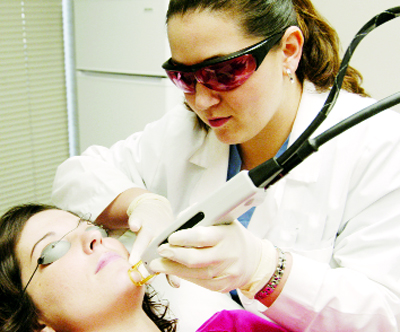Dr Neenu Koul
Unwanted hair has been traditionally removed by various techniques such as shaving, bleaching, plucking, waxing, use of depilatories, electrolysis etc. These were found to be slow, tedious, painful, inconvenient and resulted in poor long term efficacy.
Laser Hair Removal (LHR) is the most efficient method of long term hair reduction which is currently available. It offers rapid treatment of large areas with long lasting results, it is non-invasive method and causes less discomfort to the patient.
Lasers cause “Permanent hair reduction’ rather than permanent hair removal as wrongly claimed. It is defined as noticeable reduction in number of growing hair and regrowing hairs are thinner and brighter in colour.
Mechanism of Action :
Melanin (black pigment) is the target chromophore in the hair for selective photothemolysis. It absorbs laser energy over a wide range of wavelengths.
Who should go for Laser therapy: Cosmetically unwanted hair growth (upper lip, chin, beard, axilla, bikini acea etc), hirsuitism, congenial or drug induced hypertrichosis
People with keloidal tendency, patients with unrealistic expectations, active infections, superficial cuts or injuries should avoid Laser treatments.
Available hair removal systems :-
*Ruby laser
*Alexendrite laser
*Diode laser
*Q-switched Nd Yag Laser
*Intense Pulsed Light (IPL)
The efficacy and safety of each of these systems depends upon differnce in patient’s hair type.
Schedule :
Repeat treatment is usually given after 4-6 weeks. Multiple Sessions are requested to achieve desired satisfactory results.
Side-effects
Pain secondary infections, scarring, transient hypo/hiperpigmentation & textural changes.
Important Points
Best candidate for laser hair removal are individuals with black or brown hair.
Patients of hircuilism and endocrine disorders must be throughly worked up for homonal balance (i.e growing phase)
Early anagen phase of hair cycle-represents best time for hair removal.
It must be understood that laser hair removal although superior to other current forms of treatment isn’t perfect. The need for retreatment remains almost always.
(The author is Dermatologist)


